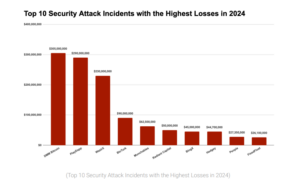Carvana (NYSE: CNVA), a prominent online used car retailer, is currently embroiled in controversy following allegations of financial misconduct and questionable related-party dealings. A recent report by Hindenburg Research has cast a shadow over the company’s financial integrity, accusing it of accounting manipulation and reliance on risky subprime loans.
These revelations have prompted significant market scrutiny and raised questions about the company’s future prospects, especially in light of key stakeholders’ insider stock sales.
Carvana Hit with Allegations of Financial Misconduct by Hindenburg Research
Hindenburg Research’s report has brought Carvana’s financial practices under intense examination. The report alleges that Carvana has engaged in undisclosed related-party transactions and accounting maneuvers that may have artificially inflated its financial performance.
The company’s business model, which heavily depends on selling subprime auto loans, is facing increasing challenges due to declining used car prices and rising loan delinquencies.
These allegations have not only sparked concerns about the company’s financial health but also about potential conflicts of interest within its board and audit committee. The involvement of entities like DriveTime, with connections to Carvana’s leadership, further complicates the situation.
Insider Stock Sales and Market Reactions
Adding to the company’s woes, significant stock sales by Ernest Garcia II, the father of Carvana’s CEO, have raised eyebrows among investors. Some have interpreted these sales as a lack of insider confidence in the company’s future, exacerbating concerns already fueled by Hindenburg’s report.
The influence of Hindenburg Research, known for its investigative prowess in exposing corporate fraud, has grown in financial markets, and its decision to take a short position on Carvana’s stock reflects a broader skepticism about the company’s valuation and sustainability.
Carvana’s stock has shown some resilience in recent trading sessions despite the turmoil. The stock closed at $203.36 on December 31, 2024, and opened at $200.705 on January 2, 2025, before climbing to a current price of $205.90 at the time of writing. This recovery comes after a day low of $186.86 and a day high of $206.4, indicating significant volatility.
Over the past year, Carvana’s stock has experienced considerable fluctuations, with a 52-week low of $40.209 and a high of $268.339. The company’s market cap stands at over $24 billion, but its high debt-to-equity ratio of 2170.979 and negative trailing EPS highlight its financial challenges.
Looking ahead, Carvana’s future appears uncertain as it grapples with both internal and external pressures. The company’s reliance on financing partners like Ally Financial is under strain, with Ally reportedly scaling back loan purchases amid rising credit challenges.
Analysts have set a wide range of target prices for Carvana’s stock, from a low of $108 to a high of $330, reflecting the market’s divided opinion on the company’s potential recovery or decline.
Disclaimer: The author does not hold or have a position in any securities discussed in the article.
About the author
Tim Fries is the cofounder of The Tokenist. He has a B. Sc. in Mechanical Engineering from the University of Michigan, and an MBA from the University of Chicago Booth School of Business. Tim served as a Senior Associate on the investment team at RW Baird’s US Private Equity division, and is also the co-founder of Protective Technologies Capital, an investment firm specializing in sensing, protection and control solutions.











